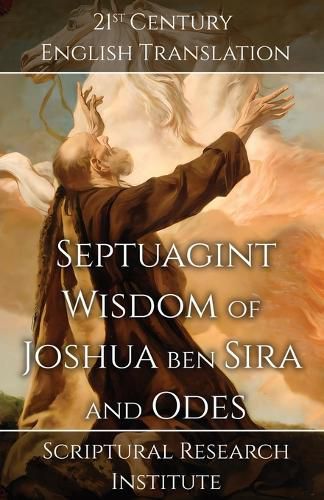Readings Newsletter
Become a Readings Member to make your shopping experience even easier.
Sign in or sign up for free!
You’re not far away from qualifying for FREE standard shipping within Australia
You’ve qualified for FREE standard shipping within Australia
The cart is loading…






This title is printed to order. This book may have been self-published. If so, we cannot guarantee the quality of the content. In the main most books will have gone through the editing process however some may not. We therefore suggest that you be aware of this before ordering this book. If in doubt check either the author or publisher’s details as we are unable to accept any returns unless they are faulty. Please contact us if you have any questions.
The Wisdom of Joshua ben Sira was an independently translated early Jewish collection of wisdom proverbs, translated in 132 BC according to the prologue by the author, which was added the Septuagint.The translator claimed to be the grandson of Joshua ben Sira, who had moved to Egypt, and found that there were no books of minor wisdom among the Septuagint, and so translated his grandfathers collection. In later centuries, additional books were sometimes added as appendixes, including the Book of Odes. The book is mostly a collection of older songs and prayers found in the Septuagint, however, it was not made from the Septuagints translations, but from Theodotions translation of circa 200 AD. Theodotions translation was not from the Aramaic texts, but the Hasmonean Dynastys Hebrew translation, resulting in some textual differences between the songs in Odes and the versions of them in the older books of the Septuagint, especially in Exodus.The Wisdom of Joshua ben Sira is known by several names, including Sirach, Wisdom of Sirach, Wisdom of Jesus Sirach, ben Sira, Ecclesiasticus, and the Book of the All-Virtuous Wisdom of Yeshua ben Sira. This diversity of names is based on the fact that the Masoretes did not copy the text, however, an Aramaic copy and some fragments of the ancient Hebrew version have survived. The conflicting names of Yehoshua ben Sira, used in Hebrew translations, and variations of Jesus Sirach, used in Christian translations, are derived from the Hebrew and Greek variants of his name.
$9.00 standard shipping within Australia
FREE standard shipping within Australia for orders over $100.00
Express & International shipping calculated at checkout
This title is printed to order. This book may have been self-published. If so, we cannot guarantee the quality of the content. In the main most books will have gone through the editing process however some may not. We therefore suggest that you be aware of this before ordering this book. If in doubt check either the author or publisher’s details as we are unable to accept any returns unless they are faulty. Please contact us if you have any questions.
The Wisdom of Joshua ben Sira was an independently translated early Jewish collection of wisdom proverbs, translated in 132 BC according to the prologue by the author, which was added the Septuagint.The translator claimed to be the grandson of Joshua ben Sira, who had moved to Egypt, and found that there were no books of minor wisdom among the Septuagint, and so translated his grandfathers collection. In later centuries, additional books were sometimes added as appendixes, including the Book of Odes. The book is mostly a collection of older songs and prayers found in the Septuagint, however, it was not made from the Septuagints translations, but from Theodotions translation of circa 200 AD. Theodotions translation was not from the Aramaic texts, but the Hasmonean Dynastys Hebrew translation, resulting in some textual differences between the songs in Odes and the versions of them in the older books of the Septuagint, especially in Exodus.The Wisdom of Joshua ben Sira is known by several names, including Sirach, Wisdom of Sirach, Wisdom of Jesus Sirach, ben Sira, Ecclesiasticus, and the Book of the All-Virtuous Wisdom of Yeshua ben Sira. This diversity of names is based on the fact that the Masoretes did not copy the text, however, an Aramaic copy and some fragments of the ancient Hebrew version have survived. The conflicting names of Yehoshua ben Sira, used in Hebrew translations, and variations of Jesus Sirach, used in Christian translations, are derived from the Hebrew and Greek variants of his name.